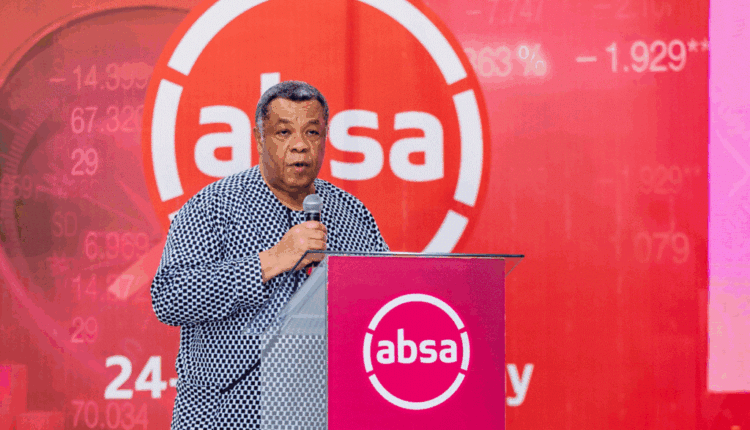Absa Bank Ghana Limited has taken a bold step in supporting Ghana’s transformational 24-Hour Economy initiative by hosting a high-level strategic dialogue in partnership with the 24-Hour Economy Secretariat.
The event, held in Accra, brought together a diverse mix of Absa’s business clients, industry leaders, and policymakers to explore the vast opportunities the initiative presents for businesses, particularly small and medium enterprises (SMEs).
The dialogue focused on how businesses can position themselves for sustainable growth under the 24-Hour Economy framework, which seeks to stimulate round-the-clock productivity across industries.
In his opening address, Dr. Edward Nartey Botchway, Managing Director of Absa Bank Ghana Ltd., reaffirmed the bank’s commitment to supporting Ghana’s socio-economic transformation. He highlighted the bank’s innovative financing solutions and its strong track record of investing in the SME sector.
“Since 2024, Absa Bank has committed GH¢1.8 billion in financing for SME businesses. At Absa Bank, we are committed to driving sustainable growth by partnering with businesses to navigate change, unlock opportunities and thrive. We recognise that our success is linked to the prosperity of our clients and the broader economy. That is why we actively support transformative initiatives like the 24-hour economy, working alongside businesses to help them realise their ambitions” Dr. Edward Nartey Botchway.
His remarks reinforced Absa Bank’s belief that entrepreneurship and enterprise development are central to inclusive growth and long-term prosperity.
24-Hour Economy
Delivering the keynote address, Augustus Obuadum Tanoh, Presidential Advisor on the 24-Hour Economy, expanded on the broader vision of the policy.
He emphasized that the initiative goes beyond extending working hours and is designed to harness Ghana’s untapped potential through continuous productivity.
“The 24-hour economy is not simply about longer hours; it is about unleashing round-the-clock productivity by connecting farmers, entrepreneurs, financiers, and consumers, while ensuring SMEs have access to affordable credit, strong governance, and sustainable growth opportunities” Augustus Obuadum Tanoh.
He stressed the need for infrastructure investment, skills development, and stronger collaboration between the public and private sectors to unlock the full potential of the initiative.
Adding the private sector perspective, Clement Osei-Amoako, President of the Ghana National Chamber of Commerce and Industry (GNCCI), called for a collaborative approach to ensure the policy’s success.
“The 24-hour economy will only succeed if manufacturers expand production, consumers drive demand, and financiers provide competitive lending rates. That is how we can turn policy into tangible growth.”
Mr. Osei-Amoako’s comments underscored the central role of the private sector in operationalizing the initiative, stressing that success depends on coordinated efforts across the value chain.
Opportunities
The dialogue featured a panel discussion led by experts from the 24-Hour Economy Secretariat, who provided further insights into the strategic benefits of the policy. They highlighted potential gains for businesses, including reduced operational costs through shared infrastructure, enhanced productivity, and significant job creation across multiple sectors.
For many attendees, the event was a unique opportunity to directly engage policymakers and industry experts. Business owners expressed optimism that aligning their operations with the 24-Hour Economy could drive long-term growth and sustainability.
Absa Bank’s role in convening this strategic dialogue underscores its broader ambition to remain a trusted partner for businesses navigating change. By committing significant resources to SMEs and facilitating conversations around national initiatives, the bank continues to position itself as a leader in supporting Ghana’s economic transformation.
Dr. Botchway reaffirmed this mission during the event: “Our role as a bank is not just to provide financing, but also to provide thought leadership and partnership. The 24-Hour Economy initiative is about creating opportunities, and we want to ensure our clients are well-positioned to take advantage of them.”
The strategic dialogue ended on an optimistic note, with participants acknowledging the vast opportunities that lie within Ghana’s 24-Hour Economy. Policymakers and business leaders agreed that a collaborative approach built on financing, innovation, and policy support—would be critical to translating the vision into reality.


Comments are closed.